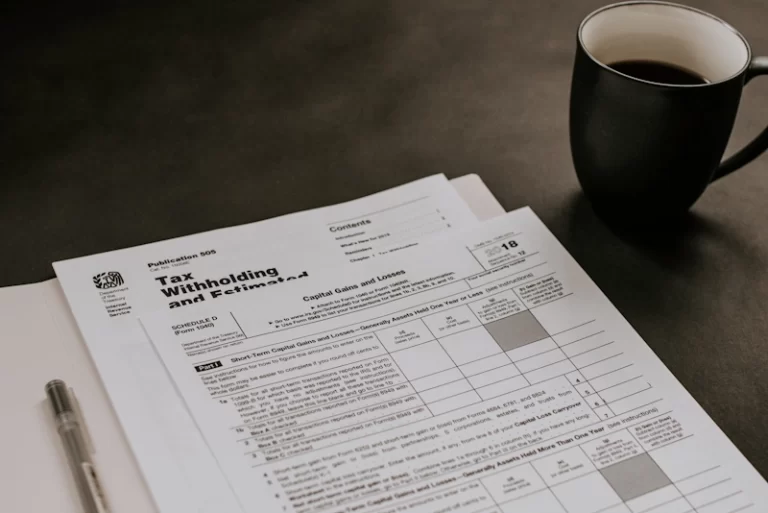Singapore has established itself as a thriving international business and financial hub, strategically located at the heart of Southeast Asia. Underpinning this success is Singapore’s pro-business tax regime, with competitive corporate tax rates and extensive tax incentives aimed at attracting foreign investment and supporting local enterprises.
This article provides a comprehensive overview of Singapore’s corporate tax structure, exploring key aspects such as tax rates, determination of tax residency status, taxable income, and the range of tax incentives and exemptions available. It also covers essentials around tax compliance like filing tax returns accurately and on time.
For companies looking to setup base or expand operations in Singapore, a robust understanding of the country’s corporate tax system is indispensable for effective financial planning and tax optimization.
An Overview of Singapore’s Corporate Tax Structure
Corporate income tax in Singapore is administered under the Income Tax Act by the Inland Revenue Authority of Singapore (IRAS). Resident and non-resident companies incorporated in Singapore are subject to a flat corporate income tax rate of 17% since 2010. This single tier tax system means that tax paid on corporate profits is the final tax, and no further tax is imposed on dividends distributed to shareholders.
The corporate tax rate is applied on income accrued in or derived from Singapore. Foreign-sourced income is also taxable in Singapore, subject to certain exemptions which will be explored later in this article.
Companies are required to file their annual corporate income tax returns based on their financial year-end, which is referred to as the basis period. The year in which tax is assessed is known as the Year of Assessment (YA). For instance, financial year 2021 (January 2021 to December 2021) corresponds with YA 2023 (from January 2022 to December 2022).
Understanding Tax Residency Status in Singapore
A company’s tax residency status determines its tax obligations and eligibility for tax incentives in Singapore. A tax resident company enjoys more tax benefits compared to non-tax residents.
A company is regarded as a tax resident of Singapore if its control and management is exercised in Singapore. Factors considered when determining residency status include having all board meetings in Singapore, maintaining strategic decision makers in Singapore, and undertaking core income-generating activities in Singapore.
Conversely, a non-resident company is one that is not registered or managed in Singapore, although they may operate through a local branch office. These non-resident companies pay tax only on income sourced in Singapore.
Tax residency principles align with Singapore’s territorial-based tax system, which generally taxes on income derived from Singapore. This drives competitiveness whilst reducing incidents of double taxation.
Key Components in Determining Taxable Income
When filing corporate tax returns in Singapore, companies declare their chargeable income, which is then used to calculate tax payable. Chargeable income refers to assessable income after allowable business deductions, capital allowances, and other reliefs.
Assessable income encompasses trading income and other sources like dividends, interest and rental income. It excludes capital gains and foreign-sourced income which qualifies for exemption. Allowable business deductions cover expenses like staff salaries/bonuses, rental, utilities, transportation, advertising and asset depreciation.
Capital allowances provide tax deduction on expenses incurred in acquiring plant and machinery assets. Common examples are capital allowance on automation equipment and intellectual property acquisition. Industrial building allowance is also granted on construction and renovation costs of qualifying industrial buildings over a period of years.
Taxable income is derived after applying exemptions and incentives like the partial tax exemption and foreign income exemption. The incentive’s part will be covered in detail later.
By accurately reporting assessable income and allowable deductions, companies optimize their chargeable incomes and overall tax payables.
Companies’ income is tax on the income earned in the preceding financial year. This is to say, income earned in financial year 2022 will be taxed in 2023. In tax terms, 2023 is the Year of Assessment (YA). The filing deadline for a Year of Assessment shall be on or before 30th November.
Spotlight on Singapore’s Competitive Tax Rate
Singapore maintains a flat corporate tax rate of 17% regardless of whether companies are local, foreign-owned, small or large. This consistent rate enables straightforward tax planning and compliance.
In fact, Singapore’s corporate tax rate is one of the lowest globally and is much lower compared to neighboring countries like Malaysia (24%) and Indonesia (25% ordinary rate). Such tax competitiveness boosts Singapore’s appeal as a hub for multinational corporations looking to set up regional headquarters.
Over the years, Singapore has also signed over 80 double taxation agreements (DTAs) and free trade agreements with trading partners across the world. These agreements prevent incidence of double taxation and ensure foreign-sourced income is only taxed once in either country.
Importance of Tax Residency for Businesses in Singapore
As outlined earlier, tax residency status has implications on a company’s tax exposure and incentives eligibility. Hence, businesses should proactively manage the following areas:
Corporate Structure: An appropriate corporate structure should be adopted to achieve tax efficiency for regional operations. For instance, key strategic functions like management decision-making can be centered in Singapore to meet tax residency conditions.
Documentary Evidence: Documentation should substantiate that the company is Singapore tax resident. Documents include board meeting minutes in Singapore, employment contracts of senior executives, statutory filings, and invoices/transactions showing income-generation taking place in Singapore.
Transfer Pricing: Tax-resident companies need to adhere to arm’s length principle for related party transactions. This involves transactions being priced fairly based on open market values as if between unrelated parties. Failing which, IRAS may impose adjustments to increase taxable profits in Singapore.
Permanent Establishment (PE): Having a dependent agent or fixed place of business in another country may trigger tax obligations there. Hence, companies should implement appropriate PE governance frameworks to avoid unintended double taxation.
Understanding Tax Exemption Schemes in Singapore
Singapore offers partial and full tax exemption schemes aimed at improving cost competitiveness for companies.
Partial Tax Exemption (PTE): The PTE scheme grants a 75% corporate tax exemption on the first S$100,000 of normal chargeable income, and a further 50% exemption on the next S$100,000. As a result, the first S$200,000 of a company’s normal chargeable income is tax exempt. This incentive reduces the effective tax rate and is especially beneficial for small and medium enterprises (SMEs).
Full Tax Exemption: Qualifying newly incorporated Singapore companies can enjoy full tax exemption on the first S$100,000 of normal chargeable income per Year of Assessment (YA), for each of the company’s first 3 consecutive YAs. To qualify, these companies need to meet conditions like having no more than 20 shareholders, all of whom are individuals beneficially and directly holding the shares. This scheme aims to support local entrepreneurship and startups during their critical formative years.
Tax Exemption for Foreign-Sourced Income
Foreign-sourced income (FSI) refers to income with an overseas source, such as:
- Profits earned by overseas branches
- Foreign dividends
- Services fee income from overseas
- Interest income from foreign sources
FSI earned by Singapore tax resident companies is taxable in Singapore. However, partial or full FSI exemption may apply if prescribed conditions are met, such as adhering to controlled foreign company rules.
FSI exemptions prevent double taxation of foreign income that has already been taxed abroad. This avoids cost duplication and enhances competitiveness of Singapore companies venturing overseas.
Overview of Other Key Tax Incentives
Besides broad-based incentives like the PTE scheme, Singapore offers many tax incentives targeted at key industry sectors:
Research & Development (R&D): Over S$19 billion in R&D tax deductions and cash payouts have been awarded to date under schemes like Productivity Solutions Grant (PSG) and Innovation and Capability Voucher (ICV). This stimulates innovation and technological capability development.
Financial sector: Tax incentives promote growth of financial institutions and fund management activities in Singapore. Schemes cover areas like offshore marine insurance, aircraft leasing, venture capital and funds domiciliation.
Maritime sector: Incentives like Maritime Sector Incentive (MSI) and International Maritime Centre (IMC) Award develop Singapore as an international maritime center. They attract top global maritime players to anchor their operations here.
Corporate treasury centers: Approved Treasury Centers enjoy a concessionary tax rate of 8% on qualifying treasury income, enhancing Singapore’s competitiveness as a global treasury management hub.
These incentives allow Singapore to continually refresh its value proposition and remain globally attractive across priority sectors.
Essentials of Corporate Tax Return Filing
All companies have to comply with annual corporate tax return filings in Singapore. Key considerations:
Due date: Filing deadline is 30 November of every assessment year. Late filing will incur non-compliance penalties.
Basis period: Tax returns should report income based on financial periods aligned to Singapore’s tax basis periods.
Supporting schedules: Tax returns are supplemented by detailed schedules and working sheets to substantiate income, expenses, deductions and incentive claims.
Estimated chargeable income (ECI): Companies declare ECI within three (3) months from the end of a financial year. Actual income may be adjusted subsequently via an amended return. Under-declaring ECI can attract penalties.
Common mistakes: Errors like incorrect incentive claims, unsubstantiated expenses, misaligned basis periods, and inconsistent foreign income declaration should be avoided. These mistakes increase audit risks and potential tax penalties.
Tax Computation Framework in Singapore
Singapore follows a clearly defined, rules-based framework for computing and assessing corporate income tax:
Basis period: As mentioned earlier, the basis period is the financial year where income and expenses are accounted for tax purposes.
Year of Assessment (YA): The YA is the year in which tax is assessed, although it does not necessarily coincide with the actual financial year end.
Previous year basis: Tax is assessed one year after the actual financial year end. For example, financial results for year 2022 (basis period) will be assessed in YA 2023. This allows companies sufficient time to close their financial accounts before assessing taxes.
This transparent process enables corporations to definitively anticipate and manage their tax obligations.
Overview of Singapore’s Tax Treaties
Singapore has established an extensive network of over 80 comprehensive double taxation agreements (DTAs) with trading partners globally.
Key benefits of Singapore’s tax treaty network:
- Eliminate double taxation of income earned in treaty partner countries
- Reduced withholding tax rates on cross-border payments between treaty countries
- Non-discrimination clauses ensure foreign businesses are not worse-off tax wise when entering Singapore markets
- Facilitates exchange of information between tax authorities of treaty partners
Reduced withholding tax rates secured under these treaties allow Singapore businesses to reduce foreign tax costs.
Singapore’s wide DTA coverage combined with unilateral tax credits also minimizes double taxation risks for businesses looking to venture abroad. Overall, the tax treaties enhance Singapore’s competitiveness and appeal as a base for managing regional and global operations.
Strategies for Managing Corporate Tax Exposure
Proactive tax planning and governance enables corporations to optimize taxes payable and remain compliant. Key measures include:
Robust tax controls: Implement appropriate procedures around tax computation, reporting, payments and audits. This improves compliance accuracy.
Tax-efficient holding structures: Managing overseas operations via Singapore-based holding companies allow consolidation of income streams and application of Singapore tax incentives.
Tax adjustments: Identify timing differences between tax and accounting to minimize unnecessary tax provisions.
Reinvest foreign profits: Profits earned by overseas subsidiaries can be reinvested abroad for further expansion instead of repatriating to Singapore immediately. This defers home country tax payments.
Pro-Enterprise panel: Qualifying companies can apply for corporate tax rebates under the Pro-Enterprise Panel, subject to meeting business expenditure and investment criteria.
Conclusion
Singapore has consistently ranked among the most tax competitive economies globally. Its strategic location, robust tax treaty network, competitive tax rates and wide-ranging tax incentives make Singapore an extremely attractive hub for regional headquarters and international businesses.
By mastering essentials around Singapore corporate tax, companies can efficiently manage their tax obligations and unlock additional avenues for tax savings. A strong grasp of Singapore’s tax regime also allows corporations to fully optimize the country’s pro-business environment to advance their growth strategies across Asia Pacific and beyond.




